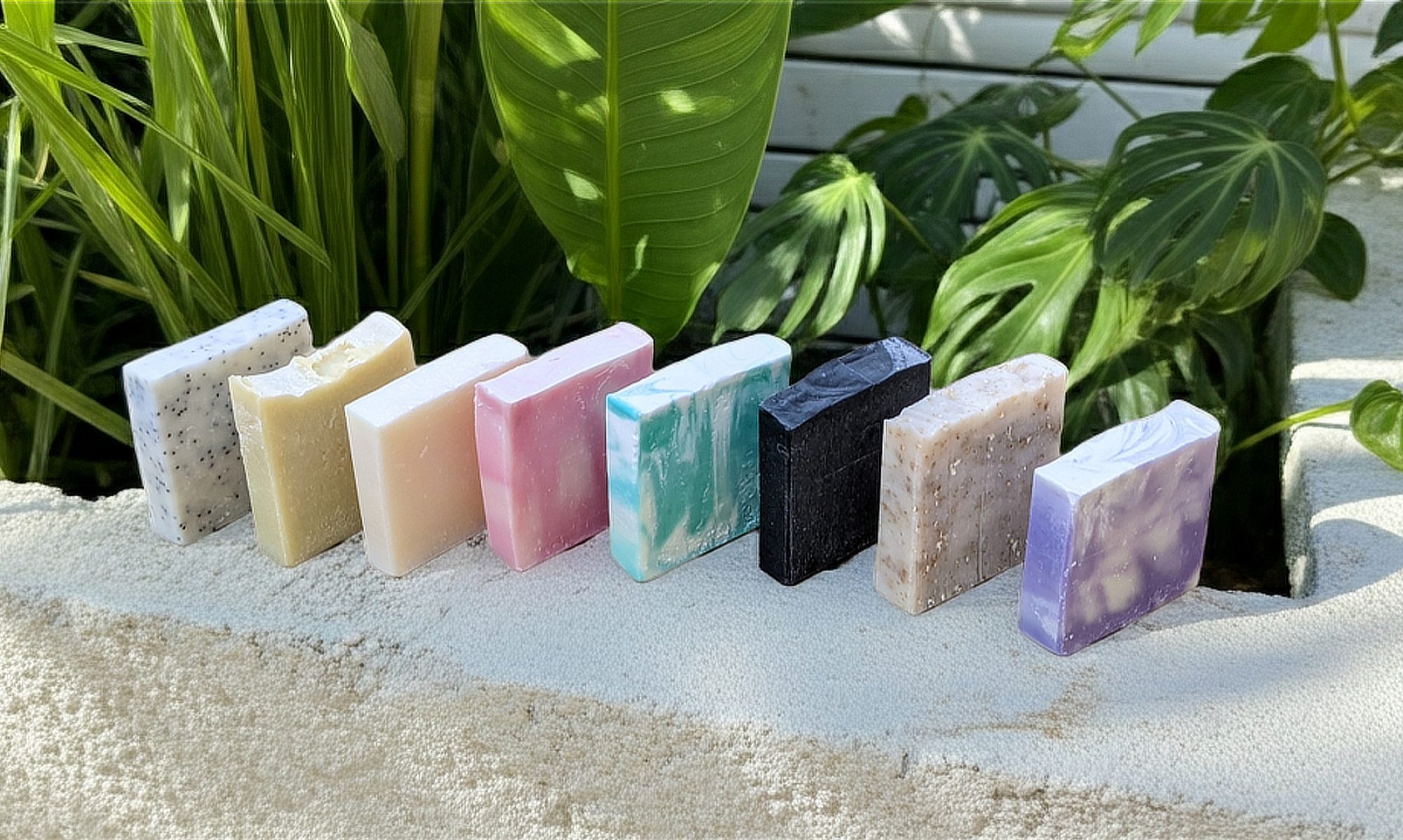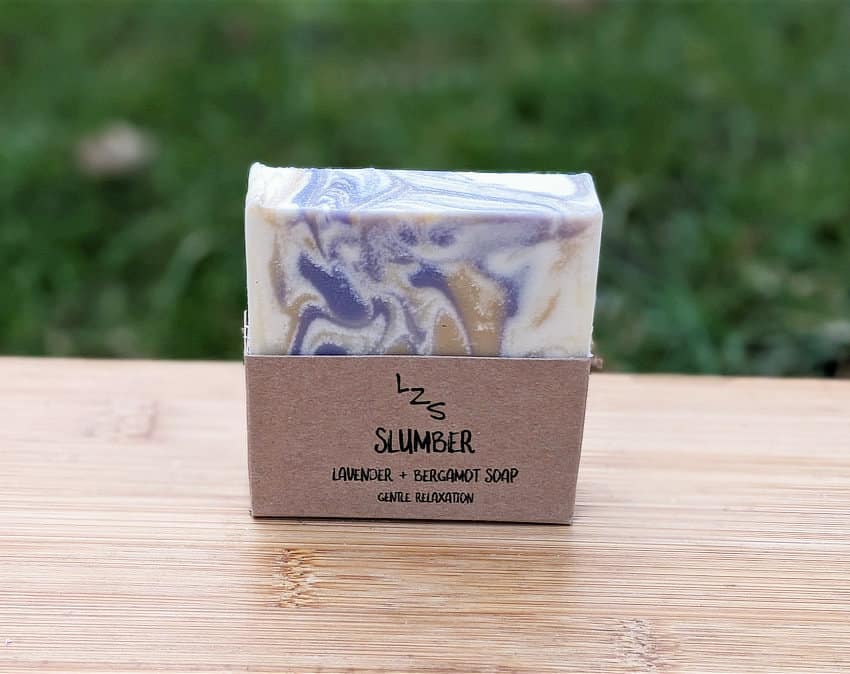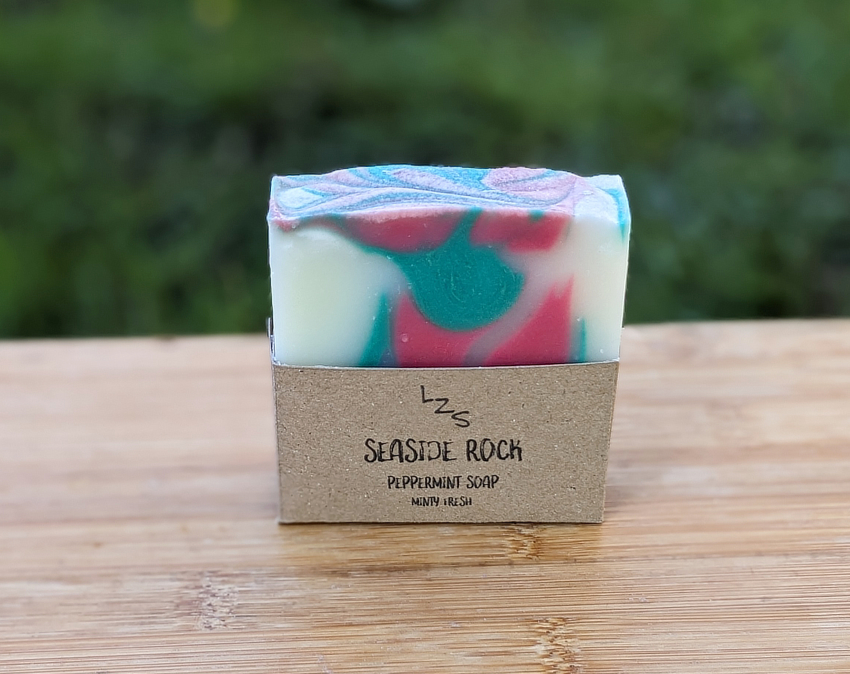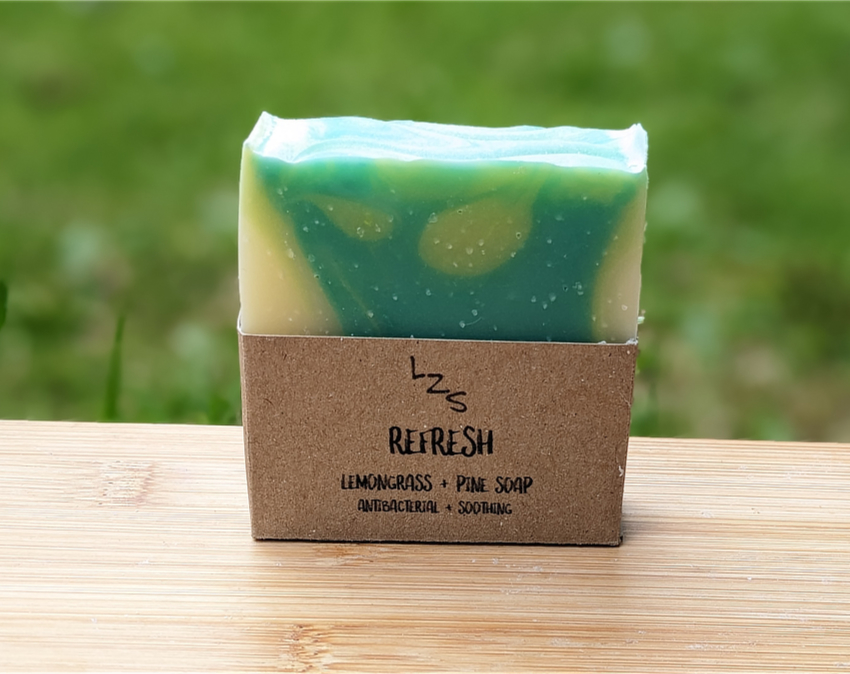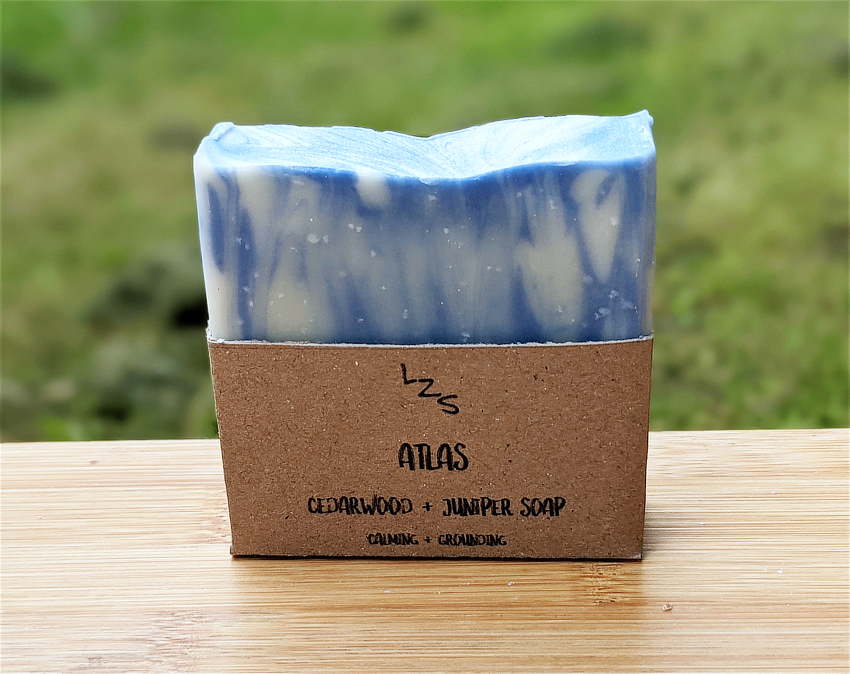If you’ve ever washed your hands or body with commercial soap and felt tight, itchy, or dry afterward, you’re not alone. That’s a common complaint, and one of the biggest reasons many people are making the switch to handmade soap. Unlike mass-produced bars, handmade soaps are often celebrated for being gentle, nourishing, and moisturising. But what actually makes handmade soap better for your skin? And why doesn’t it leave your skin feeling dry? We explain below.
1. Glycerin: The Skin-Loving Ingredient That Stays
One of the key differences between handmade and commercial soap is glycerin. Glycerin is a natural byproduct of the soap-making process (saponification), where oils or fats react with lye to form soap. It’s a humectant, meaning it draws moisture from the air to your skin, helping to keep it hydrated.
In many commercial soaps, glycerin is removed and sold separately for use in more expensive lotions or creams. This leaves behind a bar of soap that can clean the skin but often strips it of moisture.
In contrast, handmade soap retains its natural glycerin, making it much gentler and more moisturizing. This is one of the biggest reasons handmade soap doesn’t dry out your skin. (BTW, La Zouch Soap contains so much glycerin it sets the security scanners off at airports!)
2. Better Ingredients: Oils That Nourish, Not Strip
Most handmade soaps are made with plant-based oils and butters like olive oil, coconut oil, shea butter, cocoa butter, mango butter, and more. These ingredients don’t just cleanse the skin, they also nourish it.
Each oil used in handmade soap has different skin benefits. For example:
- Olive oil is rich in antioxidants and has a mild, soothing effect.
- Coconut oil offers cleansing power but is often balanced with more moisturising oils.
- Shea butter is deeply moisturising and helps soothe dry or irritated skin.
- Mango butter is loaded with rich fatty acids and is highly moisturising.
Because handmade soap recipes are carefully formulated, the oil-to-lye ratio is designed to leave a bit of extra oil in the final bar — a technique known as “superfatting.” This means there’s a slight excess of nourishing oils that remain after the saponification process, which helps moisturise and protect your skin.
3. No Harsh Detergents or Synthetic Additives
Many commercial soaps are technically not soaps at all — they’re classified as “syndet bars” (short for synthetic detergent bars). These bars often include harsh detergents, foaming agents (like SLS or SLES), preservatives, and artificial fragrances that can strip the skin’s natural oils and lead to dryness or irritation.
Handmade soaps typically avoid these harsh ingredients. They may include natural essential oils, botanicals, clays, and herbal infusions, offering a gentler, more skin-friendly cleansing experience. With fewer irritants and no synthetic detergents, handmade soap is much less likely to leave your skin feeling dry or stripped.
4. Customisable for Skin Needs
Another benefit of handmade soap is that it can be tailored to different skin types. Whether you have dry, oily, sensitive, or acne-prone skin, there’s likely a handmade soap formula suited for you. Soap makers often create specialty bars with oatmeal for soothing, charcoal for detoxifying, or coconut milk for gentle exfoliation and added creaminess.
This level of customisation ensures that the soap not only cleans but also supports your skin’s specific needs, helping it stay hydrated and healthy.
5. Handmade Soap Supports Skin Barrier Health
Your skin’s natural barrier, the outermost layer that holds in moisture and keeps irritants out , can be disrupted by harsh soaps. Handmade soap, rich in natural fats and glycerin, supports this barrier rather than damaging it.
Over time, switching to handmade soap can actually improve your skin’s texture, hydration, and resilience, especially if you’ve been using drying commercial soaps for years.
Conclusion
Handmade soap isn’t just a luxury, it’s a return to how soap was originally intended to be: simple, natural, and beneficial for the skin. With nourishing oils, retained glycerin, and none of the harsh additives found in many commercial products, handmade soap helps cleanse without drying, making it a smart choice for anyone who wants to treat their skin more gently.
Whether you’re battling dryness or simply looking for a more natural skincare option, give handmade soap a try, your skin will thank you.
Take a look at our natural soaps here and start helping your skin today!
Follow us